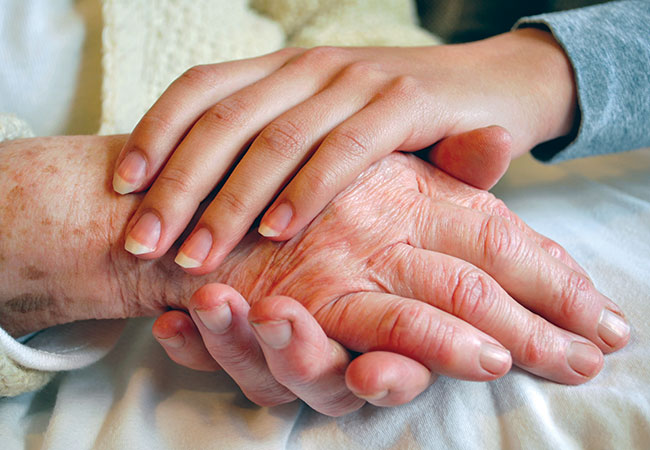Dealing with memory loss isn’t easy and seeing your loved ones go through it is heart-wrenching. An older adult with Alzheimer’s disease or dementia needs a lot of care to manage their daily life. These conditions have no known cure or remedy, and the only thing that keeps Alzheimer’s patients going is the love and care of their family and caregivers. For these patients, a dementia care plan is necessary.
Patients with Alzheimer’s suffer from a loss of cognitive function. Their behavior, thinking patterns, and memory are affected. They tend to forget the simplest of things and may also suffer from random outbursts.
Tips to Helps Patients with Dementia
Today we will look at five proven methods that help make life better for Alzheimer’s patients.
1. Develop a Daily Routine
One of the most important things for dementia care is that your patient is provided a sense of consistency in their daily lives. Caregivers must be aware that as the disease progresses, so does the patient’s ability to handle their previous tasks.
Be prepared to revise and update their routines as necessary.
Here are a few things you can do for them to achieve some normalcy in their lives.
- Keep Things Familiar & Structured
Wake them up on time. Keep their meal times consistent. Tuck them into bed at the same time.
Having a routine helps in creating new patterns that are easier to remember. The patient feels at ease without the pressure of having to catch up with the ever-changing routine. It is a good rule of thumb to develop cues that represent the different periods in the day – opening curtains in the morning to represent sunshine, using soft, calming music when it’s time for them to sleep at night, and so on.
- Encourage them to do Chores
Let them do tasks that they can. If they can tie shoelaces, let them go ahead without assistance. Doing so makes them feel they are not entirely helpless and are of use to the community or themselves.
Allow them to feel in control of their lives and let them cherish the little things they do every day.
2. Attend Social Events & Invite Visitors
Socializing is important for the elderly. With patients undergoing dementia care, it is wise to allow visitors to keep that human element intact when they are in a good mood. Avoid excessive activity at the wrong time of the day since this can upset them. Offer communication suggestions to guests who visit Alzheimer patients.
3. Record and Reflect
You will constantly need to evaluate and reevaluate your expectations with a loved one. With time, as the disease progresses, the person you thought you knew would be there no more. You need to accept the new normal and reflect on your role.
Here are some things you can do to help with this.
- Keep a Journal
Record your experiences. Celebrate your triumphs. Reflect on losses. As you write it all down, you will know how your loved one has evolved over time – and help you accept the changes.
- List the Good Things
It helps if you know how far you have come and how much there is to be grateful for. A list of things that you are thankful for can help you reorient your energies into helping your loved ones.
4. Communicate Better
Alzheimer’s disease is a progressive condition which means that with time, you will notice changes in a dementia patient in how they communicate and respond to you. You will begin to observe how they miss or substitute words, repeat sentences again and again, or feel confused.
They are susceptible to losing their train of thought and sometimes may even launch into an inappropriate outburst.
Here are some tips to help them cope.
- Patience is Key
Always give dementia patients some time to collect their thoughts. There’s no need to rush them or be impatient about it. Doing so only makes them anxious. It is a better approach to be gentle and patient with them whenever they are looking for a word to finish their sentence.
- Take Note of Your Body Language
Keep eye contact, stay relaxed and calm while talking to them. They do notice the tone of your voice, your facial expressions, and other non-verbal cues.
- Slow & Steady Speaking
Use short sentences and allow them ample time to respond. They can be slow to respond. Come up with a simpler way to explain what you want to convey.
5. Take Care of Yourself
It is easy to forget that you have needs too. Dealing with a dementia patient is stressful and emotional enough, and it’s okay to put your own welfare to the front at times. You need physical and emotional care as well. Not doing so could impair your capability of caregiving.
Here’s what you need to do.
- Talk to Someone
Make it a point to talk to a friend, therapist, family, or just anyone you feel is trusted. It is a great way to relieve stress.
- Be Active
Make sure you exercise at least 30 minutes a day. This can help release endorphins in your system and regulate your mood.
With these tips, dementia caregiving can become a more fruitful endeavor that doesn’t neglect the needs of your patient as well as you. Always be mindful of the needs of both – you and your patient – to ensure the best results.








